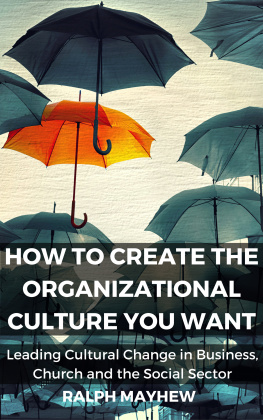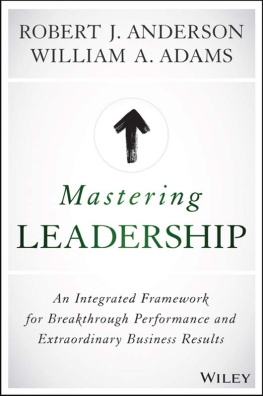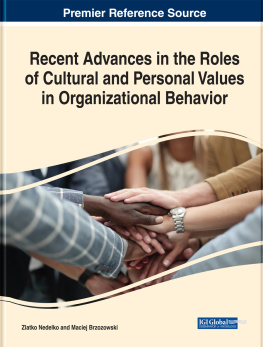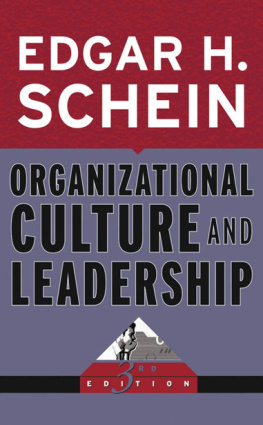Olivier Serrat
Leading Solutions
Essays in Business Psychology
1st ed. 2021

Logo of the publisher
Olivier Serrat
The Chicago School of Professional Psychology, Washington, DC, USA
ISBN 978-981-33-6484-4 e-ISBN 978-981-33-6485-1
https://doi.org/10.1007/978-981-33-6485-1
The Editor(s) (if applicable) and The Author(s), under exclusive license to Springer Nature Singapore Pte Ltd. 2021
This work is subject to copyright. All rights are solely and exclusively licensed by the Publisher, whether the whole or part of the material is concerned, specifically the rights of translation, reprinting, reuse of illustrations, recitation, broadcasting, reproduction on microfilms or in any other physical way, and transmission or information storage and retrieval, electronic adaptation, computer software, or by similar or dissimilar methodology now known or hereafter developed.
The use of general descriptive names, registered names, trademarks, service marks, etc. in this publication does not imply, even in the absence of a specific statement, that such names are exempt from the relevant protective laws and regulations and therefore free for general use.
The publisher, the authors and the editors are safe to assume that the advice and information in this book are believed to be true and accurate at the date of publication. Neither the publisher nor the authors or the editors give a warranty, expressed or implied, with respect to the material contained herein or for any errors or omissions that may have been made. The publisher remains neutral with regard to jurisdictional claims in published maps and institutional affiliations.
This Springer imprint is published by the registered company Springer Nature Singapore Pte Ltd.
The registered company address is: 152 Beach Road, #21-01/04 Gateway East, Singapore 189721, Singapore
Foreword
You dont have to do that, I told Olivier when we first met in October 2017 on the Washington, DC campus of The Chicago School of Professional Psychology. Olivier had enrolled full-time in The Chicago Schools Ph.D. in Organizational Leadership program and taken to submitting exhaustive contributions to the Professional Development Seminar I was teaching. Little did I know then that Olivier had just published a magnum opus on open access with Springer (Serrat, 2017). At 550,000 words, by the way, Knowledge Solutions: Tools, Methods, and Approaches to Drive Organizational Performance is as long as Leo Tolstoys War and Peace. Little also did I know thatnot content with studying 13 core and two elective courses, sitting competency examinations, and writing an original thesis on Leading Organizations of the FutureOlivier also meant to write Leading Solutions: Essays in Business Psychology on the side.
It is a pleasure to introduce this book, seeing it accords with the values, primary discipline of interest and practice, international outlook, and model of education of The Chicago School. Rooted since 1979 in a commitment to innovation, service, and community, The Chicago School has innovated in the field of psychology and related behavioral and health sciences. From locations across the United States (Chicago, Dallas, Irvine, Los Angeles, New Orleans, San Diego, and Washington, DC), but entirely online too, The Chicago School offers 30+ degree programs and a wealth of opportunities for international experiences to 5,600 students from nearly 50 countries. Anchored in The Chicago (EngagedProfessional) Model, students graduate with unrivaled skills, ready to make much-needed changes in agencies, community centers, hospitals, nonprofit organizations, private practice, schools, and elsewhere. The Chicago School strives to be the school of choice in professional psychology in the world.
Human diversity and ethics, interpersonal dynamics, leadership theories, organizational interventions, research strategies, strategic change management, systems thinking, teambuilding, Leadership must infuse the organization. The 13 topics this book covers in 45 chapters treat the near-entire range of subjects The Chicago Schools students can master over three years under the Ph.D. in Organizational Leadership program (core credits = 54; elective credits = 6): our students emerge from the program highly qualified to apply the principles of organizational dynamics and leadership theory in business, education, government, international organizations, nonprofits, and more.
This book gives readers an unusually accessible, critical, and engaging take on what leadership means. In the form of prcisconcise statements of essential pointsthe book combines rounded explanations of theory with article reviews, case studies, development plans, field observations, group work, journal entries, lived experience, proposals, reflections, scholarly arguments, self-assessments, and 360-degree feedback to shine exceptional insight into the reality and successful practice of leadership, today and tomorrow. The books wealth of thoughtful content makes it particularly useful to those contemplating postgraduate degrees in organizational leadership and a top-notch addition to any business library.
Reference
Serrat, O. (2017). Knowledge solutions: Tools, methods, and approaches to drive organizational performance. Springer.
Renee L. Roman Department Chair
Preface
Organizational leadership programs have seen steady growth in higher education: this is because, by dint of globalization and information and communication technology, the contexts in which individual and group performance intersect have become more dynamic than in the steady-state past. And so, organizations must nowwith inspiring visiondefine strategy, synergize people, and reach goals from improved endowments of critical thinking, collaboration, interpersonal, and research skills. Over time, organizational leadership programs have emphasized traits, skills, behavior, situation, pathgoal, leadermember exchange, transformation, authenticity, servant leadership, adaptation, followership, systems thinking, ethics, teams, gender, and culture, inter alia; today, there is talk of agile, complexity, crisis, global, technology, and virtual leadership. As you would expect, organizational leadership programs have responded to change by continuously renewing their offerings. And, because syllabuses have aimed to ensure a rounded understanding of extant and emerging theory alongside related practice, we are not short of texts on organizational leadership.
Even so, if the why of scholarly study in organizational leadership is intuitive and the what of it is at any time fairly well established, the how of courses of study is far less cognized. In other words, knowing something and actually doing it are two very different things. For that reason, this book bridges the knowdo gap of a course of study in organizational leadership by demonstrating how to deliver on assignments for superior learning outcomes, this in 45 short arguments covering 13 subjects.
I planned this book soon after enrolling in the Ph.D. in Organizational Leadership program of The Chicago School of Professional Psychology, meaning to share the experience with others considering a similar course of studies, including at the masters level. That said, the book treats many contemporary dilemmas with real-life cases and should also appeal to experienced practitioners across the public, private, and civil society sectors: using a thematic structure, the book illustrates a great many facets of organizational leadership and explores many tools, methods, and approaches to ramp up performance. The book gained in value from early preparation: the treatment of content is even and to the point, regardless of whether the writing is descriptive, expository, narrative, or persuasive. Each prcis can be read in any order: objectively, the table of contents lists the topics and the prcis within them alphabetically. Lastly, the book invites reference to the popular









